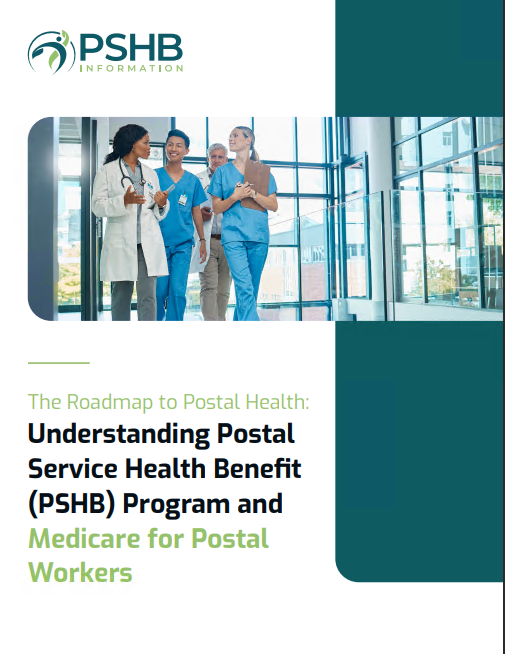Key Takeaways
- Postal workers have access to a range of health benefits, but eligibility rules can often be misunderstood or overlooked.
- Understanding the specific health benefit options available to postal employees can help maximize coverage and improve overall well-being.
Are You Missing Out on Health Benefits You Deserve? Eligibility Rules for Postal Workers
Postal workers in the United States provide critical services every day, but many may not be fully aware of the health benefits they are entitled to. The Federal Employees Health Benefits (FEHB) program offers comprehensive coverage, but understanding its nuances is key to ensuring postal workers maximize their entitlements. Navigating the eligibility requirements and benefit options can be confusing. This article will break down eligibility rules, explain benefit choices, and highlight key areas where postal workers could be missing out on important health coverage.
Understanding the Federal Employees Health Benefits (FEHB) Program
The FEHB is a government-sponsored health insurance program designed to cover federal employees, including postal workers. It offers a wide range of health insurance plans, giving workers the flexibility to choose coverage that meets their individual needs. The FEHB program stands out due to its broad selection of plans, including Health Maintenance Organizations (HMOs), Preferred Provider Organizations (PPOs), and Fee-for-Service (FFS) plans.
However, the complexity of these plans, along with different eligibility rules, means that some postal workers may not be taking full advantage of the program.
Who Qualifies for FEHB?
One of the most significant eligibility requirements is employment status. Full-time postal employees automatically qualify for FEHB coverage. But what about part-time or temporary employees? Under certain conditions, part-time employees may also qualify for FEHB coverage, though they may face different premium structures compared to full-time workers. Temporary employees, depending on the length and type of their assignment, may also be eligible for coverage, but the rules can vary.
For instance, temporary postal workers on assignments of more than a year may be eligible for FEHB, while those in shorter positions are typically not. Understanding these distinctions is critical to determining if you’re receiving the health coverage you deserve.
Health Benefits for Retired Postal Workers
Retirement is a significant life milestone, but ensuring continued health coverage can be a major concern. Postal workers who retire after at least five years of service under the FEHB are eligible to continue their coverage into retirement. However, there are specific criteria that need to be met to ensure eligibility after retirement.
Eligibility Criteria for Retirees
The key to retaining FEHB coverage in retirement is continuous enrollment. A postal worker must have been enrolled in the FEHB program for the five years leading up to retirement. Missing this requirement could mean losing out on this important post-retirement benefit.
Additionally, retirees may also qualify for Medicare coverage once they reach age 65. While Medicare is not mandatory, combining FEHB and Medicare can provide enhanced coverage, minimizing out-of-pocket expenses.
Maximizing Coverage for Postal Workers
Postal employees should take full advantage of the flexibility offered by the FEHB program. However, many do not realize the importance of carefully reviewing their plan options during Open Season—the annual period when federal employees can change their health insurance coverage. By failing to explore all available options, postal workers may miss out on plans that offer better coverage or lower costs based on their specific healthcare needs.
Making the Most of Open Season
During the Open Season, postal workers have the opportunity to adjust their coverage to meet their current needs. It’s important to compare the various health plans available, factoring in changes to health conditions, family size, or personal preferences. Selecting the right plan during this period could result in significant savings and better health coverage.
Postal workers should also pay attention to changes in their plans, as coverage and premium rates can fluctuate from year to year. Failing to review plan adjustments could mean sticking with a plan that no longer meets your needs or missing out on newly introduced benefits.
Postal Workers with Dependents: Eligibility and Coverage Options
Family health coverage is a major concern for many postal workers, particularly those with spouses and dependents. The FEHB program offers options for covering family members, but knowing the ins and outs of these options is essential.
Covering Spouses and Dependents
Postal workers can select between self-only coverage and family coverage under the FEHB program. For those with dependents, it’s important to choose a plan that provides adequate coverage for all family members. Under current rules, dependent children can remain on a parent’s health plan until the age of 26, regardless of their marital or student status.
However, postal workers should be aware that certain life changes—such as marriage, divorce, or the birth of a child—may affect eligibility for health benefits. Workers must update their plan details promptly to ensure continuous coverage for their dependents.
Special Enrollment Periods (SEPs)
Aside from Open Season, postal workers and their dependents may qualify for Special Enrollment Periods (SEPs) following life events like marriage, divorce, or the birth of a child. SEPs allow workers to change their health plan outside of Open Season, ensuring that significant life changes do not result in lapses in coverage.
Commonly Overlooked Benefits
The FEHB program offers a variety of benefits beyond traditional health insurance coverage, many of which postal workers may not be fully utilizing. Some plans offer additional services such as vision, dental, and mental health coverage, often at little or no additional cost.
Vision and Dental Coverage
While most health plans cover basic healthcare services, additional benefits like vision and dental insurance are often included in FEHB plans as well. Postal workers who wear glasses or have dental needs should ensure that their chosen plan covers these services to avoid unnecessary out-of-pocket costs. Many workers overlook these benefits, missing out on opportunities for more comprehensive care.
Mental Health Services
Another frequently overlooked benefit is access to mental health services. The stress of work and life can take a toll on mental well-being, and postal workers should take advantage of the mental health services provided by their FEHB plan. From counseling to psychiatric care, understanding and utilizing these benefits can make a significant difference in one’s overall health.
Common Mistakes Postal Workers Make When Choosing Health Coverage
Navigating the FEHB program can be challenging, and postal workers sometimes make mistakes that can cost them in terms of coverage and out-of-pocket expenses. Here are some common errors to avoid:
-
Failing to Review Coverage Annually: Circumstances change, and what worked last year may not be the best option this year. Failing to review and adjust coverage during Open Season can leave postal workers with suboptimal plans.
-
Overlooking Preventive Care: Many FEHB plans offer preventive care services such as annual physicals and vaccinations at no extra cost. Not taking advantage of these services can lead to greater health issues down the road.
-
Not Coordinating FEHB with Medicare: For retired postal workers, coordinating their FEHB coverage with Medicare can reduce out-of-pocket costs. Failing to do so could mean paying more than necessary for healthcare in retirement.
How to Ensure You Get the Coverage You Deserve
To make sure you aren’t missing out on important health benefits, postal workers should stay informed and proactive about their health coverage. This includes taking the time to understand eligibility requirements, knowing when to make changes, and keeping up-to-date with the benefits available under the FEHB program. Informed decisions can lead to better coverage, improved healthcare outcomes, and a more secure future for both workers and their families.
Consult a Licensed Insurance Agent
To further explore your health coverage options and ensure you’re not missing out, it’s beneficial to consult with a licensed insurance agent. They can provide personalized advice and help navigate the complexities of the FEHB program, ensuring you get the best coverage for your unique needs.
Health Coverage Matters
Postal workers play an essential role in society, and they deserve comprehensive health benefits that support their well-being. By staying informed about eligibility rules and taking advantage of the FEHB program, postal workers can secure the health coverage they need for themselves and their families.
Contact Information:
Email: [email protected]
Phone: 1985189791
Bio:
Catherine has come onboard as a Benefits Specialist with expertise in Medicare market to assist with a plan that will provide solutions for your needs. She has experience in life, accident and health coverage. One of her main goals is to provide hands on service directly to her clients whether coverage questions or educational information. Her hobbies include gardening, golf, and almost any outdoor activities. She looks forward providing you with a plan that will personally fit your needs.








